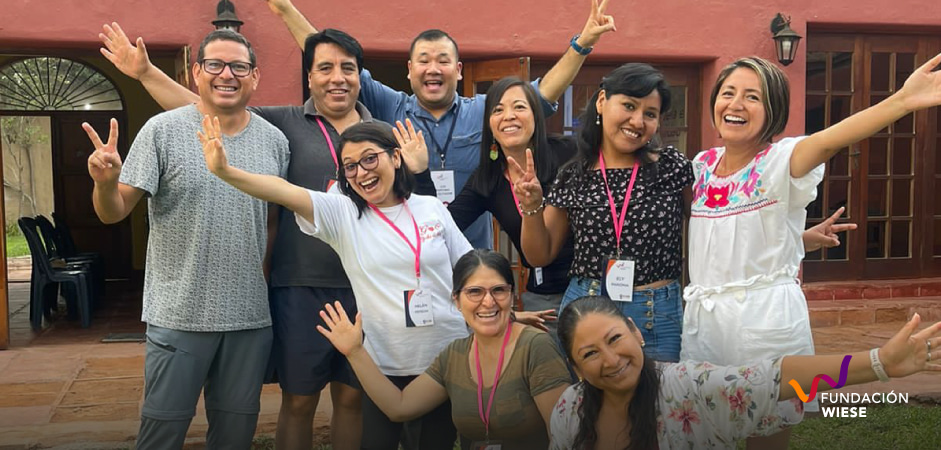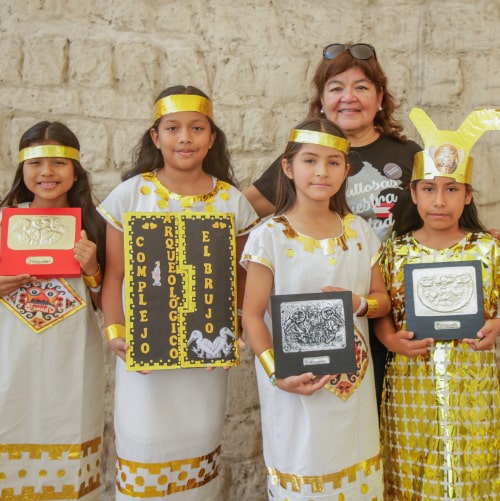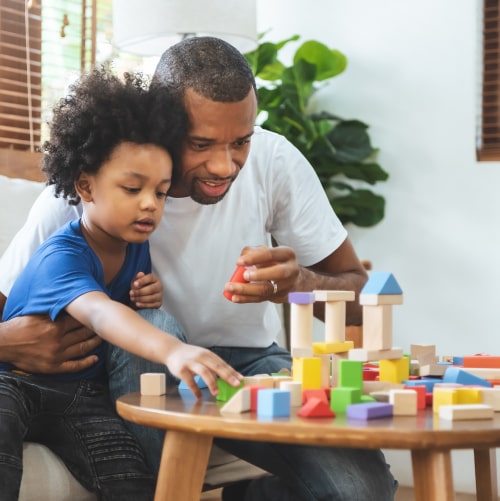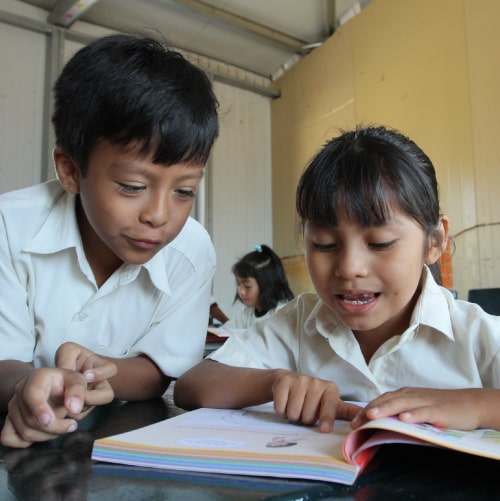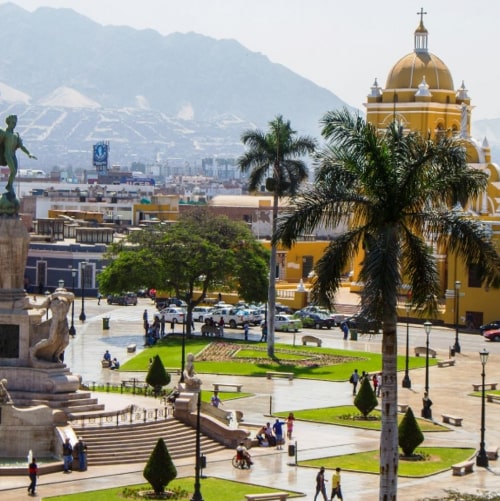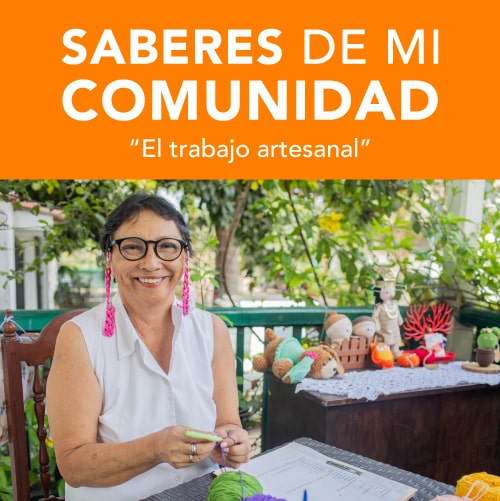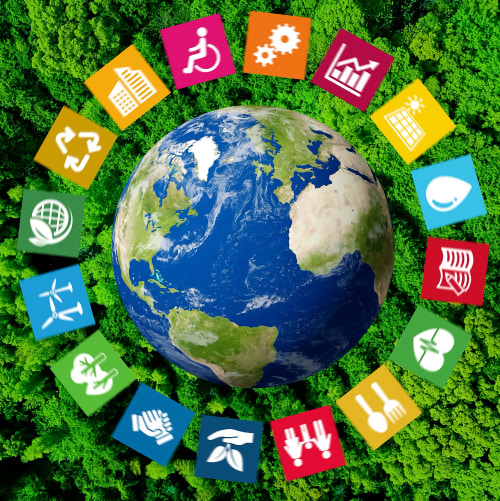The School and Identity project that we have been implementing since 2022 in 14 schools in the province of Ascope, located 1.5 hours away from Trujillo, La Libertad, seeks to improve the schooling climate in the classrooms. This purpose is intended to be achieved through the development of the socioemotional skills of teachers and the improvement of their pedagogical strategies, so that they are more participatory and democratic in the classroom. The project promoted by the Wiese Foundation is executed in conjunction with the UGEL (Local Educational Management Unit) of Ascope and the Regional Management of Education of La Libertad, within the framework of the agreement with the Regional Government of La Libertad and the Ministry of Education.
Pedagogical accompaniment
School and Identity, makes this commitment to the strategy of pedagogical accompaniment because it directly favors the professional development of teachers, by offering in-service training that is executed in a personalized way, in one-to-one attention, where teachers have the opportunity to have a pedagogical companion.
This accompaniment is inspired by the Framework of Good Teaching Performance for the development of professional skills linked to the classroom climate and collaborative work. It is mediated by the companion, who contributes to the autonomous professional development of teachers.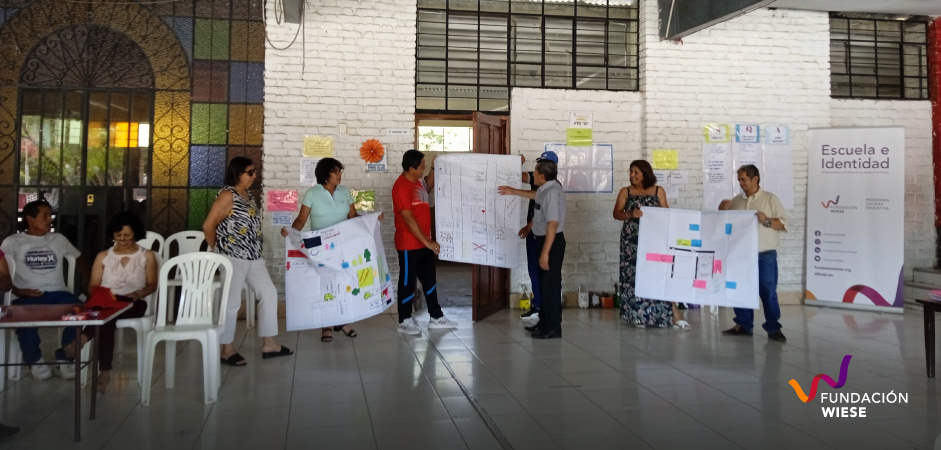
The companions who make up this team were selected after a rigorous process, which certified their professional trajectory in pedagogical accompaniment (Ministry of Education, various UGEL, private programs, etc.). And for this work, they were duly trained and formed from the perspective of the accompaniment promoted by the Wiese Foundation’s Educational Quality, in a dialogic approach, which seeks to create relationships of trust with teachers, in a horizontal dialog, generating a close link and respect, in which teachers can feel really accompanied and supported by them in the process of continuous improvement.
The accompaniment is carried out with the observation of teachers in the classroom, collecting information on the performance of the pedagogical practice, with instruments linked to the active involvement of students, promotion of reasoning and critical thinking, feedback, coexistence, among others. At the end of the observation, the reflective dialog (educational coaching) is carried out, in which the companions approach this with closeness and openness in asking questions. The objective is to generate a venue for reflection and self-evaluation so that teachers may recognize their strengths and points of improvement, and thus, establish commitments for improvement.
In this second year of implementation of the project, the first visit began in April to the 216 teachers who agreed to be part of this process and are currently receiving the third of six visits that take place throughout the year.
Micro-workshops
Aside from the accompaniment that involves individual reflection, we also seek to generate venues for collective reflection and thus strengthen collegiate spaces. This contributes to the enrichment of learning from the experience of their peers, taking into account the information collected in classroom observations. In addition to the visits, the companions run 6 micro-workshops to the 14 schools throughout the year. The topics worked on arise from the needs that are identified in the classroom observations and according to the demand of the teachers.
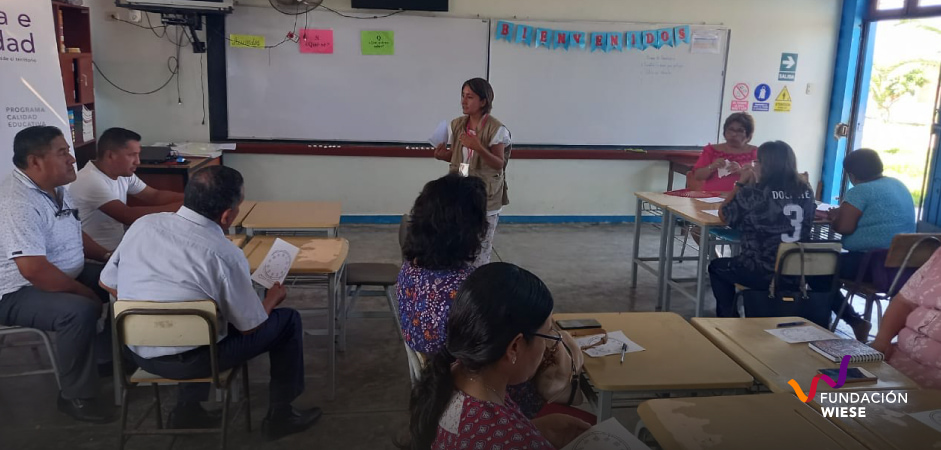
About the Team of Pedagogical Companions
The powerful team of pedagogical companions formed by Helen Pereda, Wilfredo Bastidas, Percy León, Publia Quispe, Ely Pariona, Persi Jara and Maribel Coronel, under the coordination of Edith Tovar, are in permanent training in order to perform this dedicated work, and are characterized by a great professionalism and commitment to each of the teachers accompanied. Thus, under the direction of Carola Yamanija, in coordination with Margarita Del Rosario Vásquez, head of the Pedagogical Management department of the UGEL of Ascope, this strategy is carried out, where a common commitment and passion converge for the contribution to educational quality in Ascope, specifically to objective 4 (Quality Education) of the SDGs for sustainable development in the region of La Libertad.

